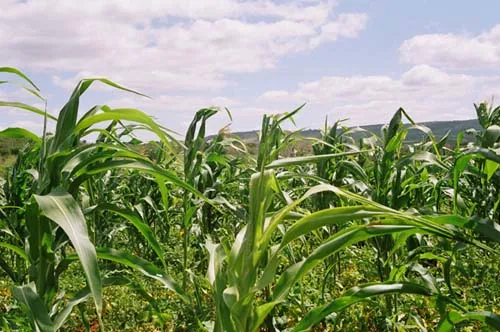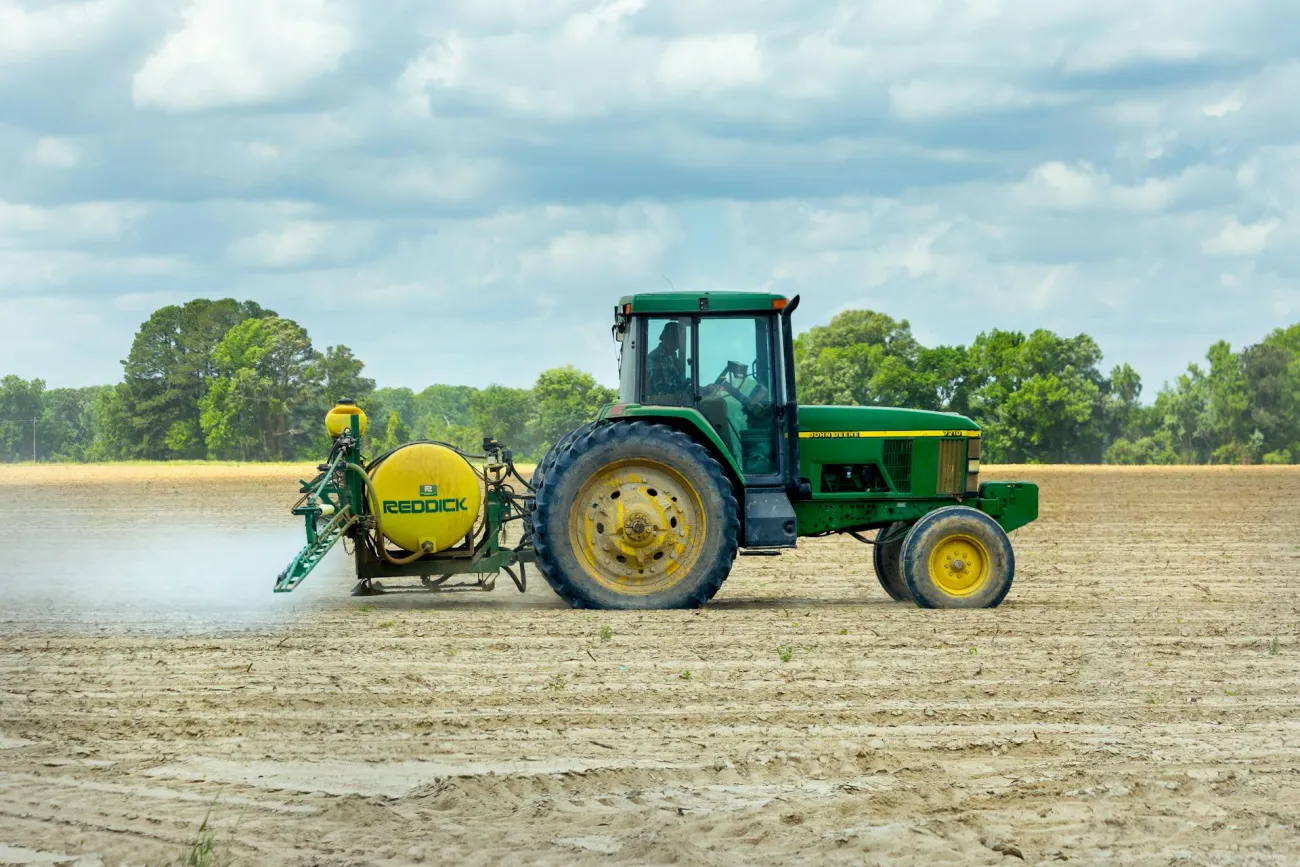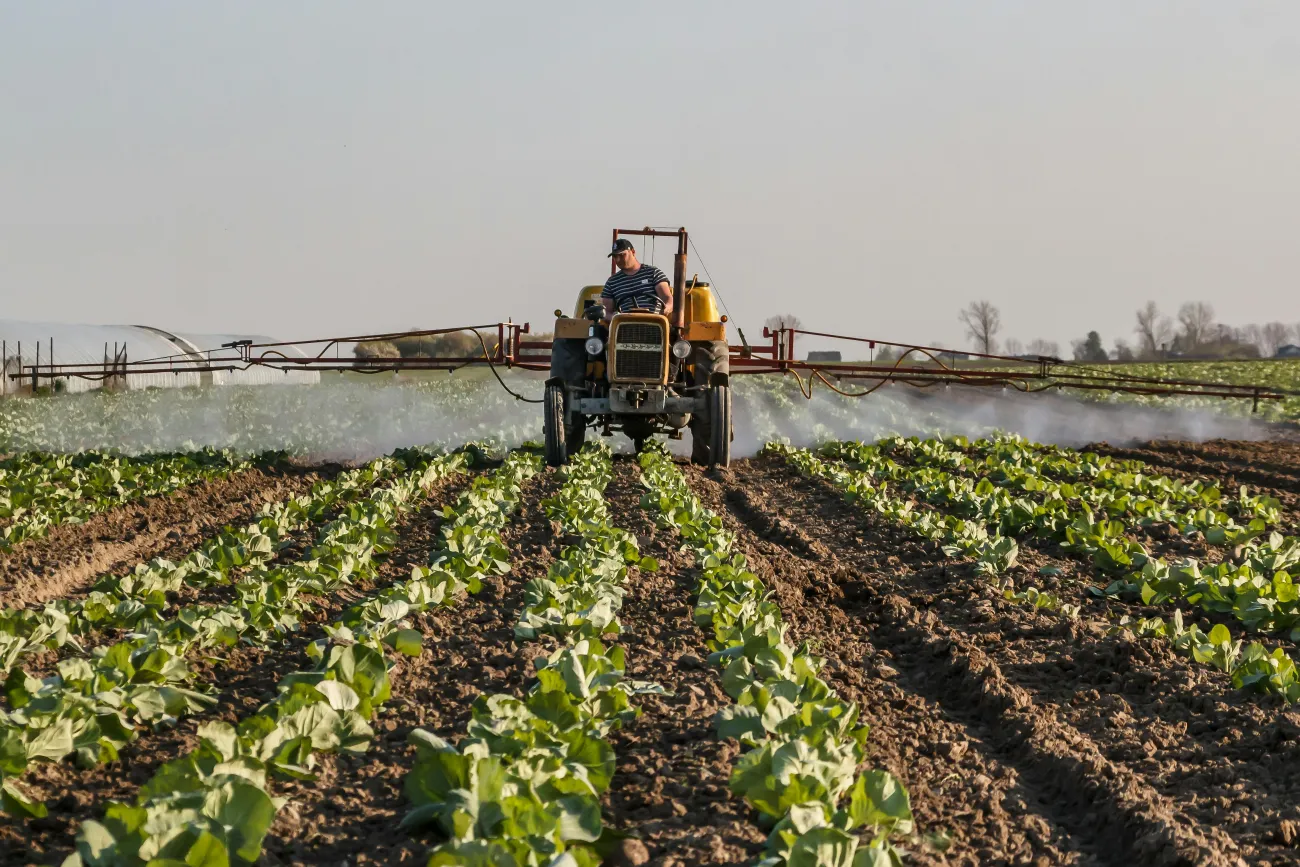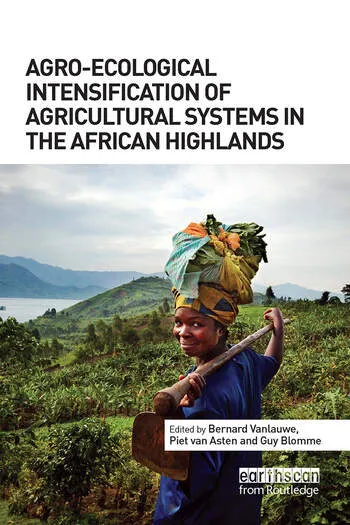This paper published in Nature Plants finds that if tropical farming intensifies, major additions of phosphorus to soils will be needed

The paper argues that relying on high-input, intensive tropical agriculture to support global food supply carries long-term risks. It finds that in some parts of the tropics, for every ton of phosphorus harvested in food, one ton needs to be added to the soil. On a global scale this could imply that millions of tons of phosphorus might have to be added to soils, something the scientists have come to call a “phosphorus tax”. So called “phosphorus-sucking” soils, which make up about 10 % of soils globally (most of them in Brazil), can possibly capture 1 to 4 million metric tons of fertilizer phosphorus each year, meaning phosphorus is lost to the soil instead of harvested in crops. This loss is roughly the same amount as is used in all of North America annually: about 2 million metric tons.
Intensive agriculture soils in tropical regions do not saturate with phosphorus the way soils in the U.S. Midwest and other global "breadbasket" regions do and so farmers in these regions will likely be obliged to apply high levels of inorganic fertilizers each year to maintain their crop yields. According to the researchers this could result in food security becoming more vulnerable to political conflict and the volatility of phosphate rock prices. The paper suggests that to reduce these risk (and the “phosphorus tax”), recycling more phosphorus-rich livestock manure to tropical croplands should be the focus, as should reducing the need for synthetic fertilizer made from phosphate rock. On a global level safely recycling phosphorus from human waste back to croplands is highlighted as an important measure. Another suggestion is changing diets. The authors write that we should rethink high-meat diets, which require more land in agriculture, and more phosphorus, than low-meat meatless diets do. Food waste reduction is highlighted as another example to slow the presumed need to intensify tropical agriculture.
Abstract
Agricultural intensification in the tropics is one way to meet rising global food demand in coming decades1,2. Although this strategy can potentially spare land from conversion to agriculture3, it relies on large material inputs. Here we quantify one such material cost, the phosphorus fertilizer required to intensify global crop production atop phosphorus-fixing soils and achieve yields similar to productive temperate agriculture. Phosphorus-fixing soils occur mainly in the tropics, and render added phosphorus less available to crops4,5. We estimate that intensification of the 8–12% of global croplands overlying phosphorus-fixing soils in 2005 would require 1–4 Tg P yr–1 to overcome phosphorus fixation, equivalent to 8–25% of global inorganic phosphorus fertilizer consumption that year. This imposed phosphorus ‘tax’ is in addition to phosphorus added to soils and subsequently harvested in crops, and doubles (2–7 Tg P yr–1) for scenarios of cropland extent in 20506. Our estimates are informed by local-, state- and national-scale investigations in Brazil, where, more than any other tropical country, low-yielding agriculture has been replaced by intensive production. In the 11 major Brazilian agricultural states, the surplus of added inorganic fertilizer phosphorus retained by soils post harvest is strongly correlated with the fraction of cropland overlying phosphorus-fixing soils (r2 = 0.84, p < 0.001). Our interviews with 49 farmers in the Brazilian state of Mato Grosso, which produces 8% of the world's soybeans mostly on phosphorus-fixing soils, suggest this phosphorus surplus is required even after three decades of high phosphorus inputs. Our findings in Brazil highlight the need for better understanding of long-term soil phosphorus fixation elsewhere in the tropics. Strategies beyond liming, which is currently widespread in Brazil, are needed to reduce phosphorus retention by phosphorus-fixing soils to better manage the Earth's finite phosphate rock supplies and move towards more sustainable agricultural production.
Citation
Roy, E. D., Richards, P. D., Martinelli, L. A., Della Coletta, L., Machado Lins, S. R., Ferraz Vazquez, F., Willig, E., Spera, S. A., VanWey, L. K., Porder, S., (2016) The phosphorus cost of agricultural intensification in the tropics. Nature Plants, DOI: 10.1038/NPLANTS.2016.43
Read the full paper here (requires journal access) and see further coverage here.
You can read more about sustainable intensification, phosphorous, fertilizer use and production efficiency/intensity.




Comments (0)